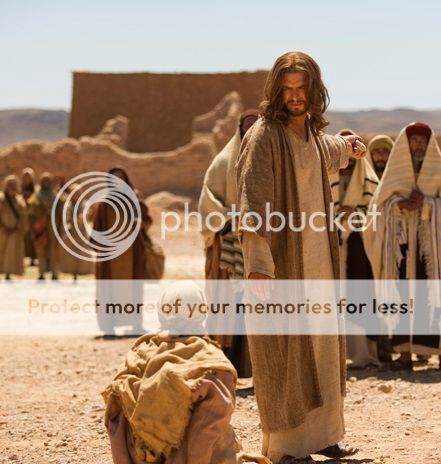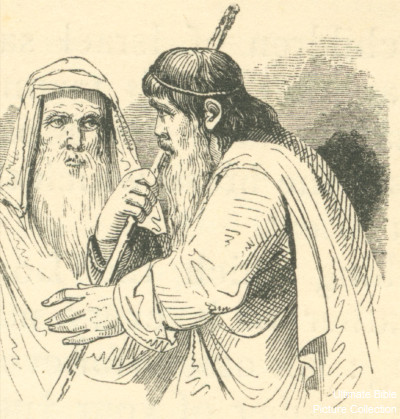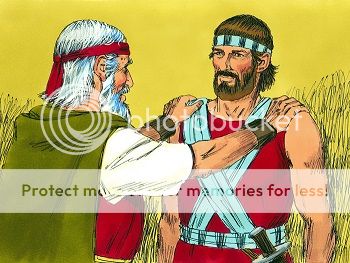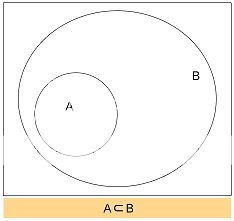Tuesday, March 26, 2019
Treated like royalty
In my eyes, you were at the very top sphere of my appreciation, the only one that stood out above all the rest.
There was no desire to worship you, I didn't want to be enslaved by that. I just wanted to admire you purely, without being abased by it, and I wanted to treat you well.
I wanted to fit your head with a queen's crown, and adorn you with the most beautiful garments, because it made perfect sense, to match your inner beauty and the one from without.
Before any one else noticed it, I saw it from very far away, from very early on, and I wanted you to feel like one, like I knew, and like I was the only one who did.
From the get-go, I only wanted to treat you like royalty, with or without others knowing that you were. To me that did not matter.
I wanted you to be a queen to me, in my heart, and to treat you like one.
Sunday, March 9, 2014
Unravelling the law and the prophets
The bible, its testaments old and new, are full of riddles, rife with passages that seem to contradict one another to the unsuspecting eye, yet seem to hold together for a person of faith.
Indeed, to the person of faith, for almost every case of contradiction, there seems to be a profound explanation that resides deep in the enigma. As such, we can't just lose hope, because something nags us, whispering to us that the answer really is dug deep within the passage.
I have not come to abolish the law and the prophets, but to fulfill them
Today I will discuss the enigma regarding Jesus' grand affirmation in Matthew 5:17, which says "I have not come to abolish the law and the prophets, but to fulfill them."
Oftentimes when reading scripture, a believer may give Christ the benefit of the doubt regarding his treatment of the law, justifying that the old has gone and the new has come. But that doesn't explain how Jesus fulfilled the old law. This is what I would call giving Jesus a free pass. To any honest thinker, this will never satisfy reason.
However, I believe I've found the answer shortly after watching the Son of God film which recently released in theaters.
In the scene in John 8:1-11 where Jesus is confronted with an adulteress, something happens. Instead of obeying the article of law in Deuteronomy 22:20-21, which states that:
Judges
To find our answer, we need return to the time of judges, where the enforcement of the law first began. Originally, in the time of Moses, the law was made to maintain order in the promised land, enforced under the governance of judges so as to ensure that the perfect justice of God was satisfied within the people of Israel.
We should remember that the very first judge was Moses, under Jethro's guidance, and that Moses was later succeeded by Joshua as judge over Israel.
The stories of the judges of Israel are recorded in the book of Judges, hence its name. As you may have suspected, the leading attribute of a judge is wisdom. Why so? Because a judge was meant first and foremost to decide and settle cases of violation of the law, who is in the right, and who is in the wrong. We get this insight on the role of judges in Exodus 18:13-16, in a portion of a passage entitled "Jethro's advice to Moses".
This critical moment, as Jesus judges the case of adultery, begs the question: is Yeshua's responsibility as a judge to evaluate whether this woman has violated the article on adultery in Deuteronomy, or to judge her according to the whole of the law, in its totality? Well, the answer is both.
In truth, as a judge, Jesus must evaluate each and every article of the law, according to the perfection of the law and the justice of the Almighty. Thus, it's true that Jesus must evaluate how this woman fares before the article of adultery, on which account she is guilty, hence his command for her to "go and sin no more". Now, having said that, Jesus must also judge her against all other articles of the law, especially those of greater importance.
When presented only with the law's article on adultery, a poor judge would ask that the woman be stoned.
The archetype for a poor judge is the Pharisee. Accordingly, Jesus judged the Pharisees in Matthew 23:23-24, saying:
To answer the second question, must Jesus, the Judge of judges, evaluate the case of the adulteress according to the totality of the law, especially according to possible aspects of greater importance? Certainly yes.
The prophets add another article to be considered in the judgement, which states:
In the spirit of love, therefore, the forgiveness of God is an article of law that cannot be ignored, and certainly takes precedence over the cold and shallow justice as offered by isolating the article of law on adultery. Ultimately, Christ's answer is that grace triumphs over imperfect justice, and that perfect justice, in contrast, demands grace. In other words, per God's perfect justice, grace is a prioritary requirement. And that is why Christ did not override the law. Instead, he made sure that the law was actually followed as it was intended to.
Only God could enforce the law as it was intended to be put into practice. For us it is a miracle, but for him it is natural. After all, he wrote the law, and the whole world governed by it.
To drive the idea home, let's look back at the original passage of Deuteronomy 22:20-21:
It now really explains from a deep level why Christ's involvement introduces the answer to the issue. If the ultimate goal is to purge the evil from among us, and we are in a cosmic battle over sin, and punishing humans for their immorality is going against the overall goal, then since Jesus leads people to repentance, without enforcing punishment, he has satisfied all laws in one shot.
(Copyrights disclaimer: This article is not for profit, share at will. The images used are property of their respective owners, I claim no rights of ownership on the images.)
Indeed, to the person of faith, for almost every case of contradiction, there seems to be a profound explanation that resides deep in the enigma. As such, we can't just lose hope, because something nags us, whispering to us that the answer really is dug deep within the passage.
I have not come to abolish the law and the prophets, but to fulfill them
Today I will discuss the enigma regarding Jesus' grand affirmation in Matthew 5:17, which says "I have not come to abolish the law and the prophets, but to fulfill them."
Oftentimes when reading scripture, a believer may give Christ the benefit of the doubt regarding his treatment of the law, justifying that the old has gone and the new has come. But that doesn't explain how Jesus fulfilled the old law. This is what I would call giving Jesus a free pass. To any honest thinker, this will never satisfy reason.
However, I believe I've found the answer shortly after watching the Son of God film which recently released in theaters.
In the scene in John 8:1-11 where Jesus is confronted with an adulteress, something happens. Instead of obeying the article of law in Deuteronomy 22:20-21, which states that:
"20 If, however, the charge is true and no proof of the young woman’s virginity can be found, 21 she shall be brought to the door of her father’s house and there the men of her town shall stone her to death. She has done an outrageous thing in Israel by being promiscuous while still in her father’s house. You must purge the evil from among you."Jesus chooses grace. Why is that decision not a violation of the law?
Judges
To find our answer, we need return to the time of judges, where the enforcement of the law first began. Originally, in the time of Moses, the law was made to maintain order in the promised land, enforced under the governance of judges so as to ensure that the perfect justice of God was satisfied within the people of Israel.
We should remember that the very first judge was Moses, under Jethro's guidance, and that Moses was later succeeded by Joshua as judge over Israel.
The stories of the judges of Israel are recorded in the book of Judges, hence its name. As you may have suspected, the leading attribute of a judge is wisdom. Why so? Because a judge was meant first and foremost to decide and settle cases of violation of the law, who is in the right, and who is in the wrong. We get this insight on the role of judges in Exodus 18:13-16, in a portion of a passage entitled "Jethro's advice to Moses".
13 The next day Moses took his seat to serve as judge for the people, and they stood around him from morning till evening. 14 When his father-in-law saw all that Moses was doing for the people, he said, “What is this you are doing for the people? Why do you alone sit as judge, while all these people stand around you from morning till evening?” 15 Moses answered him, “Because the people come to me to seek God’s will. 16 Whenever they have a dispute, it is brought to me, and I decide between the parties and inform them of God’s decrees and instructions.”Such a task requires wisdom, which we know from the story of Solomon and the two mothers in 1 Kings 3:16-28.
16 Then two women who were harlots came to the king and stood before him. 17 The one woman said, “Oh, my lord, this woman and I live in the same house; and I gave birth to a child while she was in the house. 18 It happened on the third day after I gave birth, that this woman also gave birth to a child, and we were together. There was no stranger with us in the house, only the two of us in the house. 19 This woman’s son died in the night, because she lay on it. 20 So she arose in the middle of the night and took my son from beside me while your maidservant slept, and laid him in her bosom, and laid her dead son in my bosom. 21 When I rose in the morning to nurse my son, behold, he was dead; but when I looked at him carefully in the morning, behold, he was not my son, whom I had borne.” 22 Then the other woman said, “No! For the living one is my son, and the dead one is your son.” But the first woman said, “No! For the dead one is your son, and the living one is my son.” Thus they spoke before the king. 23 Then the king said, “The one says, ‘This is my son who is living, and your son is the dead one’; and the other says, ‘No! For your son is the dead one, and my son is the living one.’” 24 The king said, “Get me a sword.” So they brought a sword before the king. 25 The king said, “Divide the living child in two, and give half to the one and half to the other.” 26 Then the woman whose child was the living one spoke to the king, for she was deeply stirred over her son and said, “Oh, my lord, give her the living child, and by no means kill him.” But the other said, “He shall be neither mine nor yours; divide him!” 27 Then the king said, “Give the first woman the living child, and by no means kill him. She is his mother.” 28 When all Israel heard of the judgment which the king had handed down, they feared the king, for they saw that the wisdom of God was in him to administer justice.Thus, when Jesus is presented a woman caught in adultery, he is in essence being asked to settle a matter as a judge. If Jesus is the Sage of sages as explained in Matthew 12:42
"42 The queen of the south shall rise up in the judgment with this generation, and shall condemn it: for she came from the uttermost parts of the earth to hear the wisdom of Solomon; and, behold, a greater than Solomon is here."then he certainly is the Judge of judges.
This critical moment, as Jesus judges the case of adultery, begs the question: is Yeshua's responsibility as a judge to evaluate whether this woman has violated the article on adultery in Deuteronomy, or to judge her according to the whole of the law, in its totality? Well, the answer is both.
In truth, as a judge, Jesus must evaluate each and every article of the law, according to the perfection of the law and the justice of the Almighty. Thus, it's true that Jesus must evaluate how this woman fares before the article of adultery, on which account she is guilty, hence his command for her to "go and sin no more". Now, having said that, Jesus must also judge her against all other articles of the law, especially those of greater importance.
When presented only with the law's article on adultery, a poor judge would ask that the woman be stoned.
The archetype for a poor judge is the Pharisee. Accordingly, Jesus judged the Pharisees in Matthew 23:23-24, saying:
23 “Woe to you, teachers of the law and Pharisees, you hypocrites! You give a tenth of your spices—mint, dill and cumin. But you have neglected the more important matters of the law—justice, mercy and faithfulness. You should have practiced the latter, without neglecting the former. 24 You blind guides! You strain out a gnat but swallow a camel.Forgiveness in the Prophets, and the Law
To answer the second question, must Jesus, the Judge of judges, evaluate the case of the adulteress according to the totality of the law, especially according to possible aspects of greater importance? Certainly yes.
The prophets add another article to be considered in the judgement, which states:
"No more shall every man teach his neighbor, and every man his brother, saying, `Know the Lord,' for they all shall know Me, from the least of them to the greatest of them," says the Lord. "For I will forgive their iniquity, and their sin I will remember no more." (Jer 31:34)Furthermore, within the law itself, the second greatest commandment was taught by rabbi and Judge of judges Yeshua, recorded in Matthew 22:36-40:
36 “Teacher, which is the greatest commandment in the Law?” 37 Jesus replied: “‘Love the Lord your God with all your heart and with all your soul and with all your mind.’ 38 This is the first and greatest commandment. 39 And the second is like it: ‘Love your neighbor as yourself.’ 40 All the Law and the Prophets hang on these two commandments.” (references to Deuteronomy 6:5 and Leviticus 19:18 added)Therefore, Jesus reveals that the law itself follows an order of priorities, one law taking precedence over another, one weighing more than the other.
In the spirit of love, therefore, the forgiveness of God is an article of law that cannot be ignored, and certainly takes precedence over the cold and shallow justice as offered by isolating the article of law on adultery. Ultimately, Christ's answer is that grace triumphs over imperfect justice, and that perfect justice, in contrast, demands grace. In other words, per God's perfect justice, grace is a prioritary requirement. And that is why Christ did not override the law. Instead, he made sure that the law was actually followed as it was intended to.
Only God could enforce the law as it was intended to be put into practice. For us it is a miracle, but for him it is natural. After all, he wrote the law, and the whole world governed by it.
To drive the idea home, let's look back at the original passage of Deuteronomy 22:20-21:
"20 If, however, the charge is true and no proof of the young woman’s virginity can be found, 21 she shall be brought to the door of her father’s house and there the men of her town shall stone her to death. She has done an outrageous thing in Israel by being promiscuous while still in her father’s house. You must purge the evil from among you."This sad situation must be looked at from the root, the last phrase of the passage: "You must purge the evil from among you." The idea behind all this nastiness is that morality is seen as a cosmic battle between good and evil. To fight immorality is to fight evil itself. From that point of view, what is one life on earth compared to eternity?
"[W]hat will it profit a man if he gains the whole world and forfeits his soul? Or what shall a man give in return for his soul?" (Matthew 16:26)Yet at the same time, killing a person, even as a judge, as a punishment for something immoral done, looks like a perpetuation of evil and sin, akin to murder. Would it not be therefore going backwards in the cosmic battle against sin?
It now really explains from a deep level why Christ's involvement introduces the answer to the issue. If the ultimate goal is to purge the evil from among us, and we are in a cosmic battle over sin, and punishing humans for their immorality is going against the overall goal, then since Jesus leads people to repentance, without enforcing punishment, he has satisfied all laws in one shot.
"Go, and sin no more".
(Copyrights disclaimer: This article is not for profit, share at will. The images used are property of their respective owners, I claim no rights of ownership on the images.)
Wednesday, October 30, 2013
Carving Starship Enterprise
Lately I've been enjoying Star Trek Enterprise with my friend Bern. I'm a real fan of the series, its themes and characters.
It's a pity the series was cancelled short of making its 5th season for all sorts of reasons. The cast was so great together, and the heart was there.
In this post I wanted to share my first pumpkin carving attempt, and for this occasion I chose to design starship Enterprise in line with my recent affection for the series.
Hope you like it.
Monday, May 16, 2011
New post displays on twitter (try 2)
Trying this a second time. Try 2!
Well, this worked. What I did was I created an account with twitterfeed @ twitterfeed.com. It's a service that allows you to share your rss feeds on your twitter or facebook pages. Knowing that my blogs on blogger can be followed as rss feeds by using the url to the phillyeah blog, I pasted the site URL in twitterfeed and now any new post is posted to my twitter account, updated by the half-hour.
Neat.
Well, this worked. What I did was I created an account with twitterfeed @ twitterfeed.com. It's a service that allows you to share your rss feeds on your twitter or facebook pages. Knowing that my blogs on blogger can be followed as rss feeds by using the url to the phillyeah blog, I pasted the site URL in twitterfeed and now any new post is posted to my twitter account, updated by the half-hour.
Neat.
New post displays on twitter, following via my twitter account
I'm looking at ways to have my blog automatically tweet on my twitter page. I subscribed as the first and only follower of my blog :), and after connecting my twitter account to this blog, I'm hoping the posts will automatically post on my twitter page.
Here's to this working!
That didn't work, I set up the connection between twitter and Google Friend Connect, but the actual subscription to the blog failed. To retest, I've now edited the post hoping at least the edit will pop up on twitter.
Philly out
Here's to this working!
That didn't work, I set up the connection between twitter and Google Friend Connect, but the actual subscription to the blog failed. To retest, I've now edited the post hoping at least the edit will pop up on twitter.
Philly out
Saturday, November 20, 2010
But that was yesterday... A game on life
For all of you still learning about life, walking through life's path, learning from the past (that means everyone), this is a piece of art for you.
Magician track 12 by phillyeah
Have you ever watched the movie l'Auberge Espagnole, with Romain Duris and Audrey Tautou? Or l'Horloge Biologique (its sequel)? This game is the closest thing I've seen to those movies, in this art form, that of video games.
Follow this link and you'll see what I mean.
Also, the music from this game kind of reminds me of one of the most enchanting songs I heard in a video game in the past. I actually heard it first about 7 years ago when I was just browsing the internet, not in a game, but while watching a video on life that some guy made. He had used the track as background music for the story. The track is from a game called Magician, which was released on the NES in 1991. Mind you I've never played. Point being, the song is awesome, and I that's what I wanted to share with you all.
Magician track 12 by phillyeah
Put your feedback in the comments if you want to share what you think.
Philly out
Wednesday, February 10, 2010
Google Buzz and dreams
Today, I am very excited about Google Buzz! First reason is that I never really got into twitter, second is that I'm already pretty much sold out to gmail. So, to have the two in one is like heaven for me.
 ROCKS! :)
ROCKS! :)
Now, this is completely unrelated, but I really wanted to share this. I feel kind of bored with celebrities now a days, and I'm not sure why. Maybe I'm just not a kid anymore, I get less swept away by something marvelous. But the fact is, I find a lot of today's popular icons boring. Now, this is what came to my mind in the thought process:
 When is the last time we saw a legend like this in action. Maybe I'm going too far, but I haven't felt the awe I remember from those days in a long time.
When is the last time we saw a legend like this in action. Maybe I'm going too far, but I haven't felt the awe I remember from those days in a long time.
As for my dream. I made a weird dream yesterday. I dreamt of 3 flags. One way high, the other was a little lower, but high, and the third was very low. I think they were the American flag, the Canadian flag (or indian flag) and the Russian flag. All of a sudden, the Russian flag starts going up. I was watching that with my brother and my dad, and we were all surprised. We were like "hey, they're coming back aye?" :)

 Yes, I do realize this is totally random!
Yes, I do realize this is totally random!
Enjoy!
 ROCKS! :)
ROCKS! :)Now, this is completely unrelated, but I really wanted to share this. I feel kind of bored with celebrities now a days, and I'm not sure why. Maybe I'm just not a kid anymore, I get less swept away by something marvelous. But the fact is, I find a lot of today's popular icons boring. Now, this is what came to my mind in the thought process:
As for my dream. I made a weird dream yesterday. I dreamt of 3 flags. One way high, the other was a little lower, but high, and the third was very low. I think they were the American flag, the Canadian flag (or indian flag) and the Russian flag. All of a sudden, the Russian flag starts going up. I was watching that with my brother and my dad, and we were all surprised. We were like "hey, they're coming back aye?" :)

 Yes, I do realize this is totally random!
Yes, I do realize this is totally random!Enjoy!
Subscribe to:
Posts (Atom)













